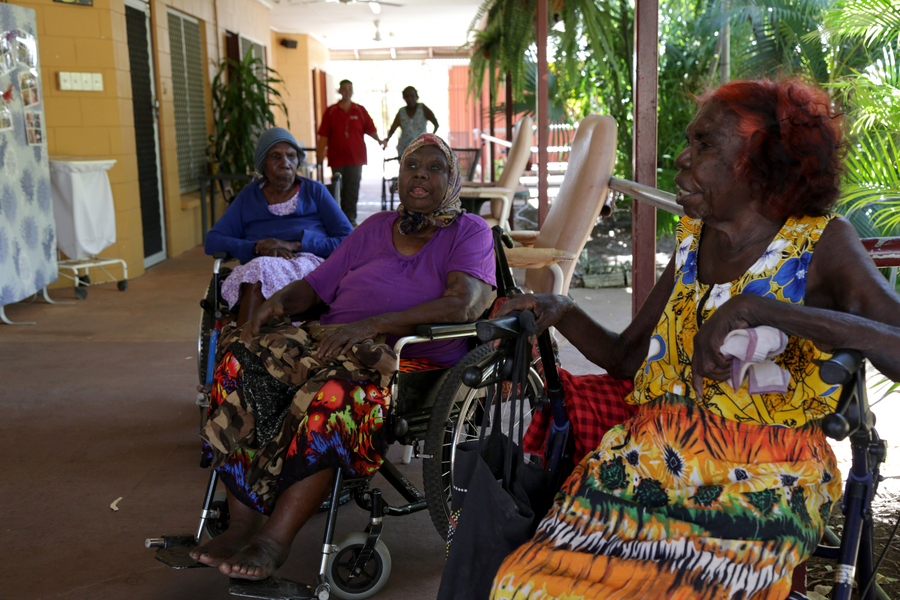The power of connecting with community and country
Footballers trained in suicide awareness, men camping in cars to tackle violence and Indigenous aged care residents re-energised to be back on country.

This Northern Territory town is taking its own unique approach to social issues, with positive results.
Traditional lands of the Dagoman, Jawoyn and Wardaman peoples, Katherine is a three-and-half-hour drive south of Darwin.
The town has a population of 11,000 and is built on mining, industry and tourism. Like every community across Australia, Katherine has its own unique challenges. It's also using its residents' skills and strengths to respond to these challenges and Red Cross is working alongside them.
Check out this video to see how.
Mental Mates: Two people in every sports club, trained to respond to crisis.
Dylan Lewis was devastated and confused when two mates from his rugby club committed suicide a few years ago.
"I definitely felt we needed to try and help the young fellas realise there is help out there and how to get to it," he says.
Dylan started Mental Mates, which trains at least two people in every sporting organisation to be able to respond to people in crisis.
Red Cross has been running a two-day Mental Health First Aid training course for a year, working with Dylan and the community to highlight the importance of the program.
Over 100 people in Katherine have completed the free mental health training.
Reducing violence: Katherine Men's Group.
One in three women in Australia will experience domestic and family violence and in the Northern Territory that figure is even higher. Within the correctional system, 72% of prisoners are in there for violence-related matters.
It's these shocking statistics that led to the creation of the Katherine Men's Group, now active organisers of community events such as White Ribbon Day.
Red Cross Community Development Officer Stan Law is a member. He says they're getting the message out that no form of violence is ever acceptable.
More than a hundred residents camped in their cars for White Ribbon Day 2017 to raise awareness of what it's like for women and children fleeing violent homes with nowhere to go.
Caring for seniors: Closing the gap in life expectancy.
While most Australians enjoy a long life, it's not so for Aboriginal and Torres Strait Islander peoples. Indigenous men live to 69 years compared with 79 for non-Indigenous men and Indigenous women live to 73 years compared to 83 for non-Indigenous women.
At Kalano Flexible Care in Katherine, the average age of its Aboriginal residents is 88 years.
The centre has 18 beds and its guests come from in Katherine or the many remote Aboriginal communities in the area.
In 2016, a number of residents were supported to return home to Gurindji country and attend the 50th anniversary of Wave Hill walk off.
Manager Sue Pszkit says they run an innovative program of share bedding, supporting guests health and wellbeing by re-connecting with their traditional lands, community and family. "This means that clients that come from the same community can get to go home. So when one client's in, the other gets to home and it's been really successful."
Building stronger communities
Katherine is a typical example of the work we're doing in 10 place-based communities across Australia. Each community already knows how to solve its problems, we provide tools, resources and a commitment to walk with them all the way.
Charity donations of $2 or more to Australian Red Cross may be tax deductible in Australia. Site protected by Google Invisible reCAPTCHA. © Australian Red Cross 2024. ABN 50 169 561 394